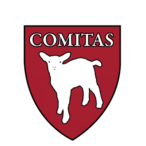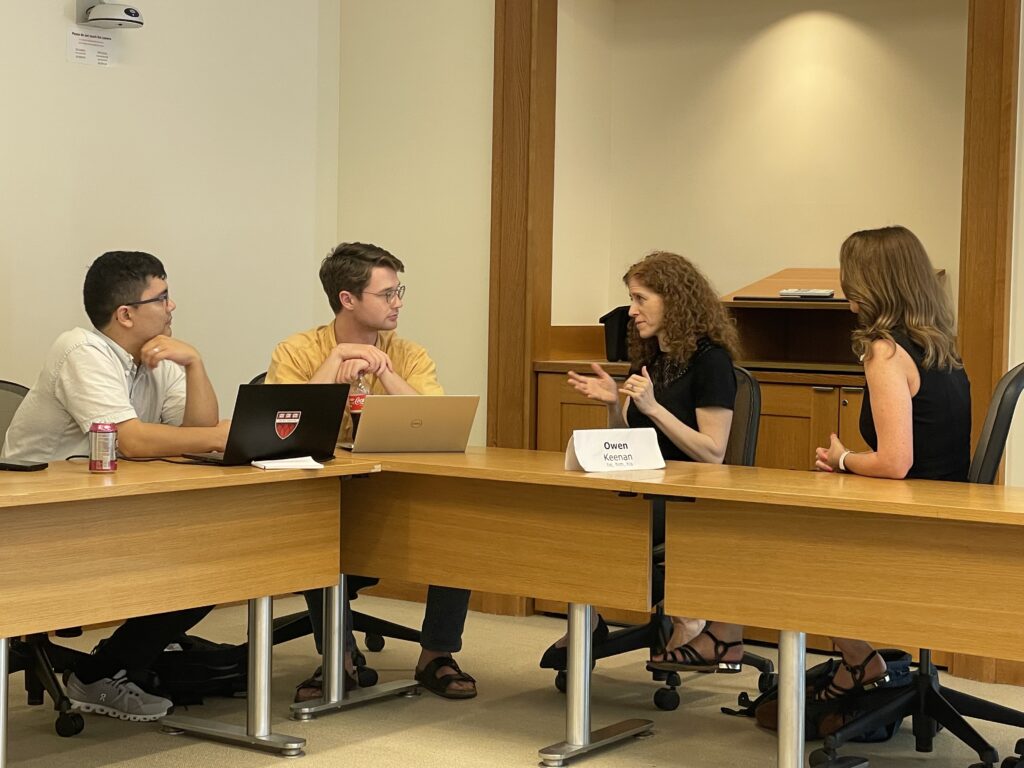


“I knew an important part of my HLS experience would be working in our Animal Law & Policy Clinic. Now, after finishing my first semester in the Clinic, I realize just how right I was and what a unique opportunity this Clinic provides HLS students. Under the guidance of clinic director Mary Hollingsworth, who comes to HLS after years of litigating for the Department of Justice, and after only a year of law school myself, I was able to start two wildlife-focused litigation projects with two of the most influential animal rights NGOs in the country as our clients. . . . Mary does a wonderful job supporting us wherever we are on our respective journeys of learning about and committing to animal welfare, which has translated into a safe, productive environment in which to tackle tough animal and legal issues that can be quite personally sensitive.
After coming to the end of my first semester working in the clinic, where I was able to put some of my nascent legal skills to work on behalf of animals, I am even more convinced that I am at the right place and that a legal career focused on helping animals what I am meant to do”
— Second-year J.D. student Valerie McCarthy
“I loved all three of the projects I worked on during my time with the Clinic and I am grateful for the opportunity to get involved in this work. I especially enjoyed working on the Clinic’s project to get the U.S. Fish and Wildlife Service to re-list manatees as an endangered species. As a Floridian, I appreciated the value and impact of this work for this beloved species. The Clinic
provides an excellent opportunity to grow, both as an attorney and as an advocate. It allows students to take a lead role in projects, engage in client communication, and improve research and writing skills.”
— Sophie Pereira, JD ‘24
This past semester, I had the opportunity to work with the clinic on an amicus brief in the U.S. Court of Appeals for the D.C. Circuit. The brief, submitted on behalf of eleven
scientists, addressed the consideration of climate change in listing decisions under the
Endangered Species Act, an urgent issue for countless vulnerable species in an era of unprecedented environmental change. The case was one of many incredible experiences
I have had in my two years with the Clinic, spanning the federal, state and local levels and including appellate and district court litigation, rulemaking petitions, and more on behalf of a wide variety of animals. The opportunity to work with and learn from such knowledgeable and passionate advocates while having a concrete impact on the field has been invaluable.
As I embark on the next stage of my career, working with the Wildlife Law team of the Southern Environmental Law Center as an Associate Attorney, I know that my success in securing my dream postgraduate job would not have been possible without the practical experience I gained during my time with the clinic, and I am immeasurably grateful to the ALPC team for giving me the opportunity to develop and hone the foundational tools, skills and knowledge I will need to be an effective advocate.”
— Allyson Gambardella, JD ’24
Clinic Overview
The Clinic’s primary areas of practice include:
- Wildlife & biodiversity
- Captive and companion animals
- Farmed animal welfare; and
- Access to plant-based food
Students typically work on two cases or projects each semester. The Clinic offers students an opportunity to work on litigation, administrative law, and advocacy projects. Students working on litigation projects may draft federal complaints, standing declarations, or briefs. In 2024, students drafted an amicus brief that was filed in the D.C. Circuit in an Endangered Species Act case challenging the downlisting of a species facing threats due to climate change. Students working on policy projects may prepare petitions for rulemaking or comments on federal actions that impact animals. The Clinic recently worked with the Jain community to prepare a petition for rulemaking, requesting that the U.S. Department of Agriculture amend the National School Lunch Program regulations to ensure that vegan and vegetarian students with religious dietary restrictions have access to nutritious plant-based food options.
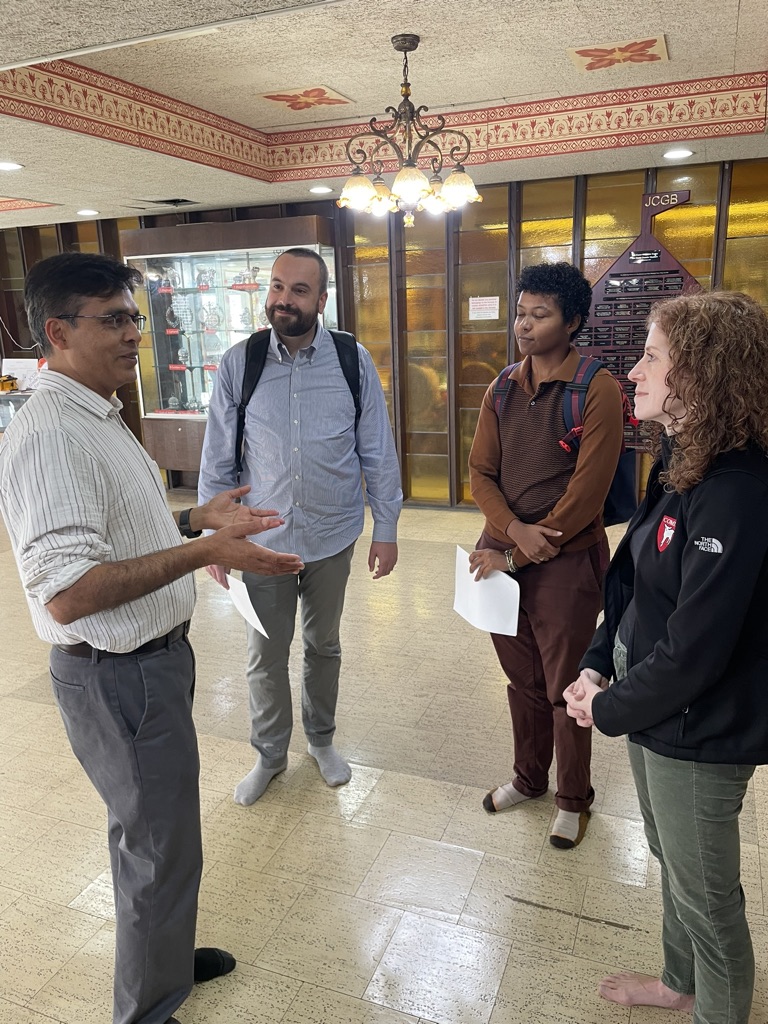
Jain Center Visit: ALPC visited the Jain Center of Greater Boston to gather community feedback on an advocacy toolkit and a petition to the USDA. ALPC conducted two parallel listening sessions with parents and students, followed by a larger group discussion. During these conversations, participants shared their firsthand experiences and concerns regarding the lack of adequate plant-based meal options in school cafeterias.
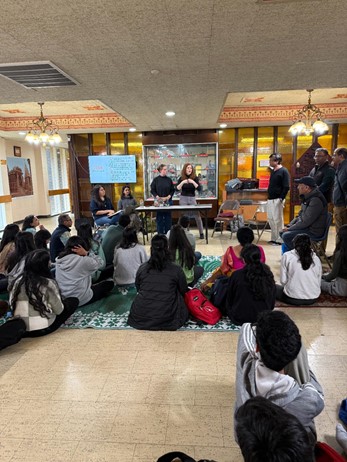
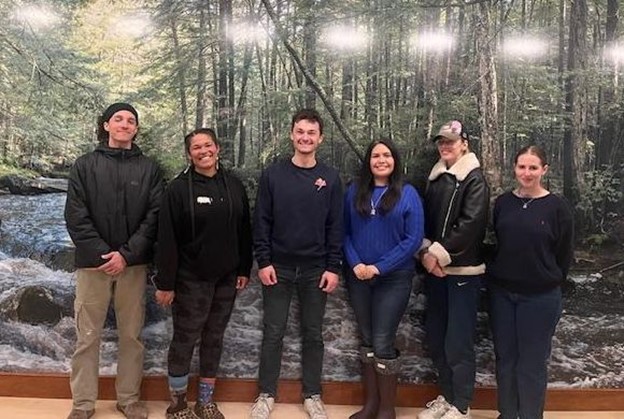
Harvard Forest Visit: ALPC met with tribal leaders at Harvard Forest in March to discuss the impacts of anticoagulant rodenticides on the birds of prey with whom some indigenous communities in Massachusetts share a spiritual connection. The student clinicians then worked closely with the tribal leaders to prepare a comment letter in response to the Draft Phase 1 Report of the Anticoagulant Rodenticides Scientific Review that has been undertaken by the Massachusetts Department of Agricultural Resources. The Clinic requested that tribal leaders in Massachusetts be identified as key stakeholders in the scientific review process and that their Tribal Ecological Knowledge be incorporated into the review.
Clinics in a Minute: Arlene Lopez ’23
The Animal Law & Policy Clinic provides students with direct hands-on experience in animal advocacy on behalf of both captive animals and wildlife, including litigation, legislation, administrative practice, and policymaking.
